
Note: Rural Sprout and the author are not medical experts, nor do we give out medical advice. If you or someone you love is struggling with depression, we encourage you to call, text, or chat 988, the National Mental Health Crisis Line or your state’s mental health resources.
I love to garden. You love to garden. It’s why you’re reading this. From crisp sliced cucumbers to the perfection of a vine-ripened tomato, we take great pride in growing veggies, fruits, flowers, herbs & berries. But what happens when you walk out to your garden, look at all the plants and think,
“Meh.”
Normally, our gardens are not only a source of food but also a source of joy. We relish the work involved in bringing forth a harvest.
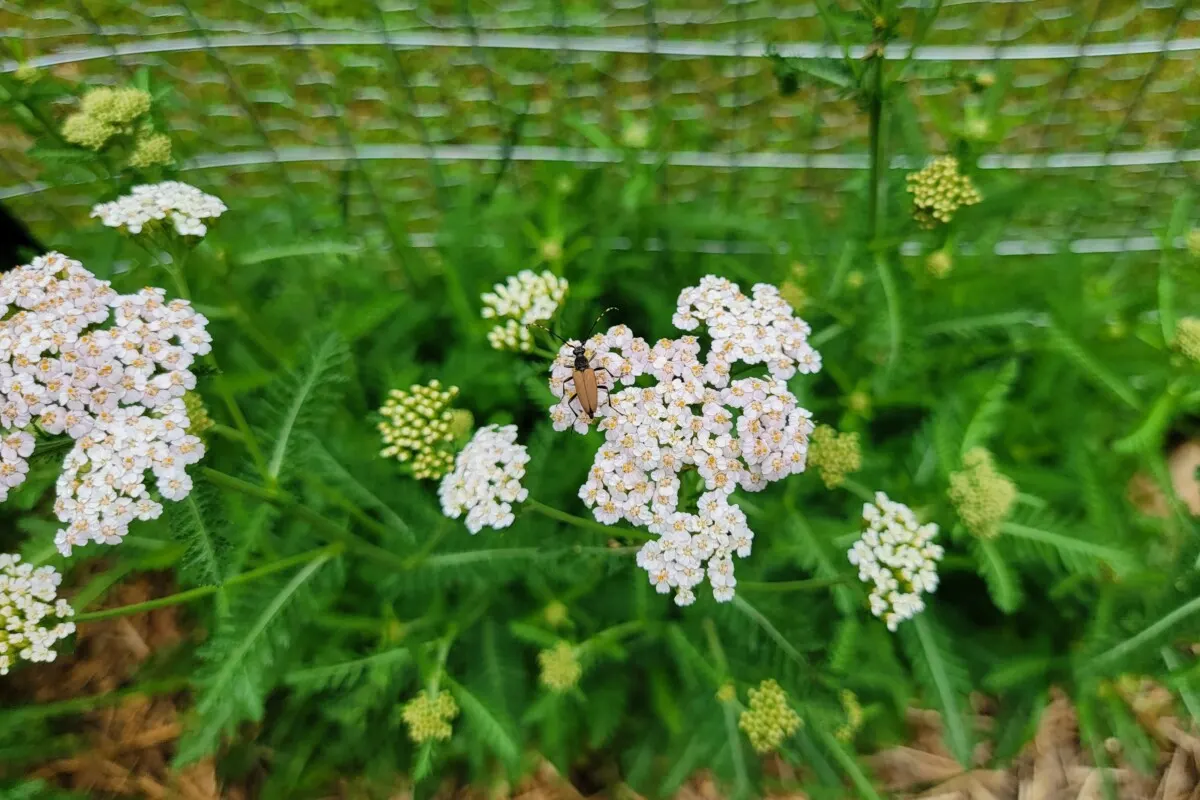
But if you garden long enough, eventually, you’ll experience a season where you feel burned out.
Despite gardens being a lot of work, we love them. But sometimes, the thing we love that requires a lot of time and energy becomes something we love to avoid. Don’t worry; it happens to everyone, and it’s usually temporary. There are plenty of ways to get your mojo back. Let’s tackle your lack of “growjo” together.
Is It In the Garden or Out of It?
When faced with garden burnout, the best thing you can do is figure out the source.
By that, I mean, is the garden itself not working this year, or is something going on in your life making gardening less enjoyable?
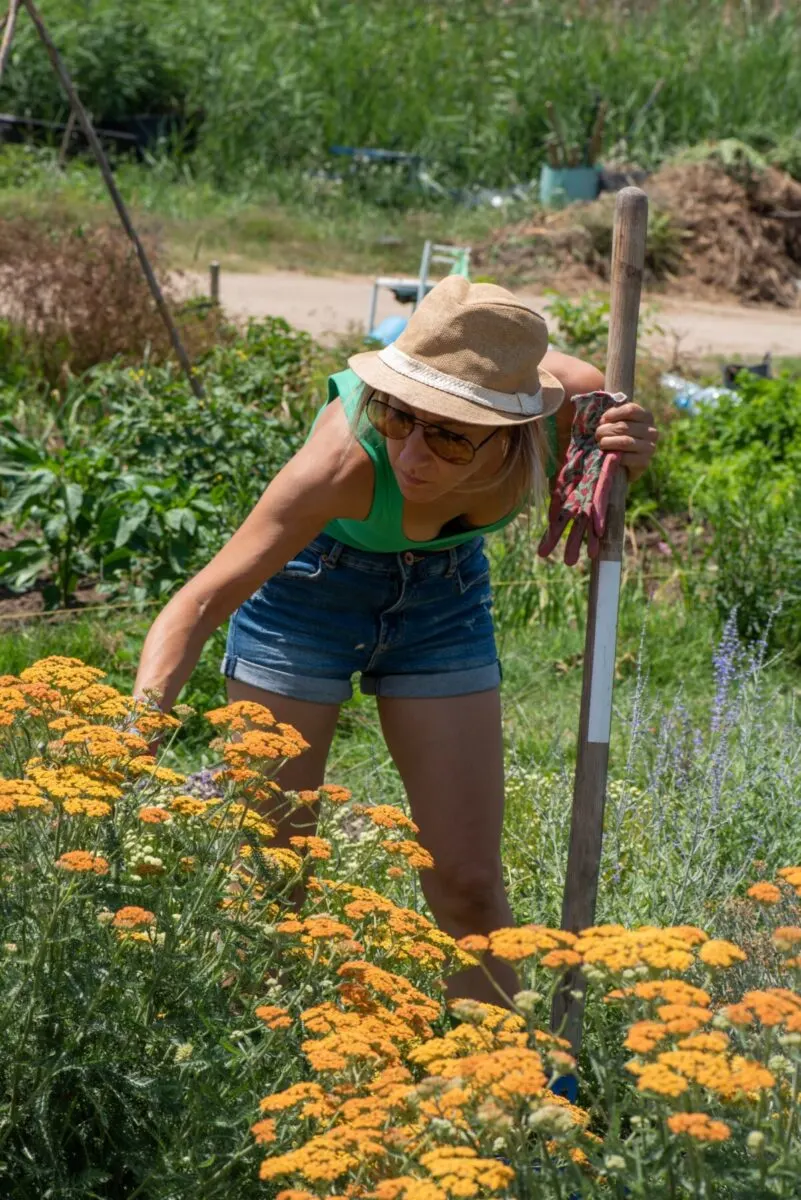
Maybe it’s a combination of both.
Either way, it’s a good idea to figure out which.
In the Garden Issues
As we all know, every season has its own challenges, so it’s no surprise that you’re ready to throw in the trowel when enough of those challenges stack up.
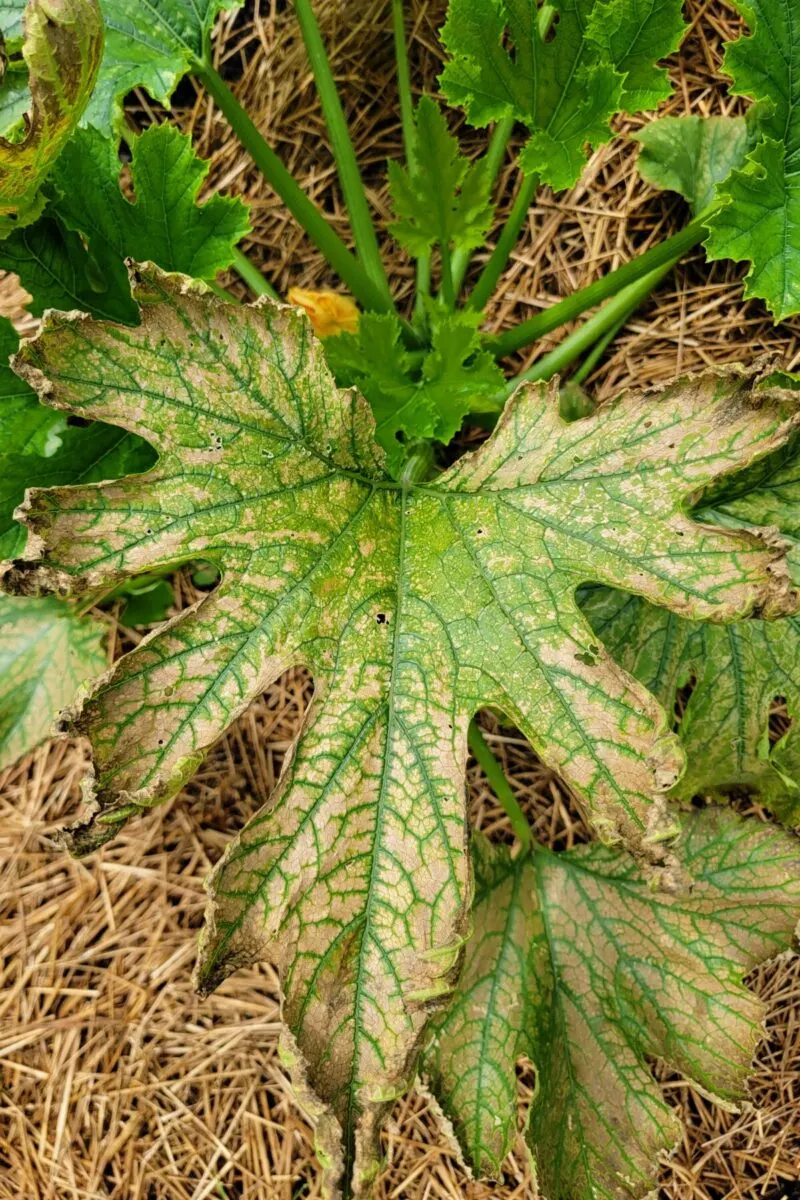
- Getting your garden in late – nothing takes the joy out of an experience quicker than feeling like you’re being rushed. Is this going to work? Is it too late to plant this? This should have been started weeks ago.
- Surprise late frosts – maybe you got your garden off to a great start, and then WHAM! You were hit with a frost well past your last expected frost date. Frost damage and losing plants to a frost at the beginning of the season can put a damper on your spirits, especially if you grew those plants from seed.
- Battling four-legged critters – it sucks when you’re watching plants grow, dreaming of that first bite, only to find that some critter came along and got the first bite first. It’s easy to lose steam when you’re fighting the local rabbit or deer population for your veggies.
- A season of bad weather – whether it’s too much rain, not enough, or storms that damage your crops, sometimes it feels as though Mother Nature has it in for your garden. And because it’s something we can’t easily control, we feel especially helpless.
- All the pests – sometimes you get those seasons where you feel like every veggie-eating insect known to man appears in your garden. What’s worse is seeing the tell-tale damage of the same pest you battled the year before. It’s incredibly disheartening.
- Too much garden – this one can sneak up on you. Perhaps you expanded your garden only to find it’s more than you can manage. Or maybe you planted too much of a particular plant, and now you’re overwhelmed by the bounty.
- Weeds, weeds, weeds – oh yes, you knew they would be on the list somewhere. When you’re dealing with other issues, the weeds often end up being the straw that breaks the camel’s back.
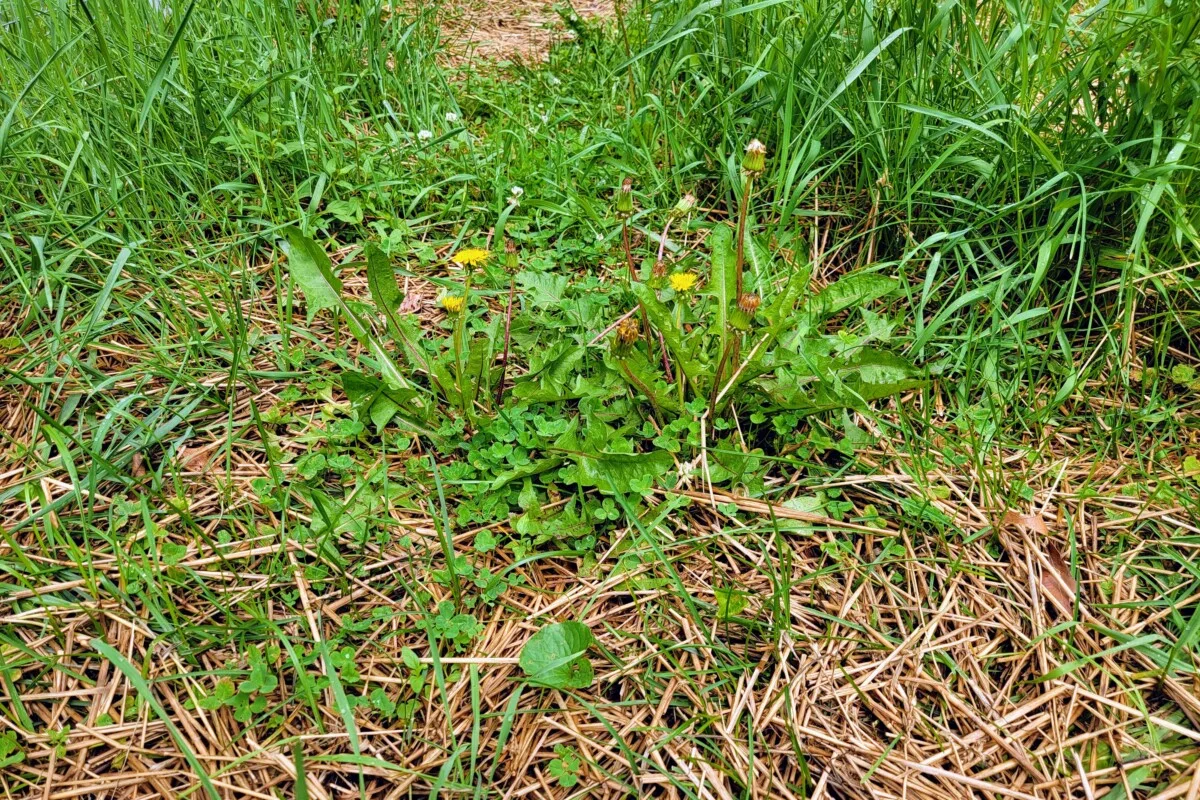
Out of the Garden Issues
Sometimes life is the reason we’re not feeling up to gardening.
- New gardener syndrome – it’s not uncommon for new gardeners to bite off more than they can chew. Bolstered by the enthusiasm for their new hobby, they head into the season with grand plans and tons of plants. About midsummer, they realize the garden has taken over their life, and they’re going to run screaming down the street if they have to eat one more zucchini.
- Different climate – if you’ve moved to a new region you’re unfamiliar with, you may be finding out the hard way that you can’t grow certain vegetables there. Or you may have a shorter season to work with, or your new climate requires much more watering.
- Big life changes – dealing with big life changes, like a new job or baby, can certainly change how you interact with your garden. You may not have the time, or when you do, you may have other things competing for your attention. New parents may want to nap rather than pull weeds.
- Busy schedule – even without major life changes, we all seem to be busier in the warmer months of the year. Some seasons are busier than others, whether it’s travel, other hobbies, work or play.
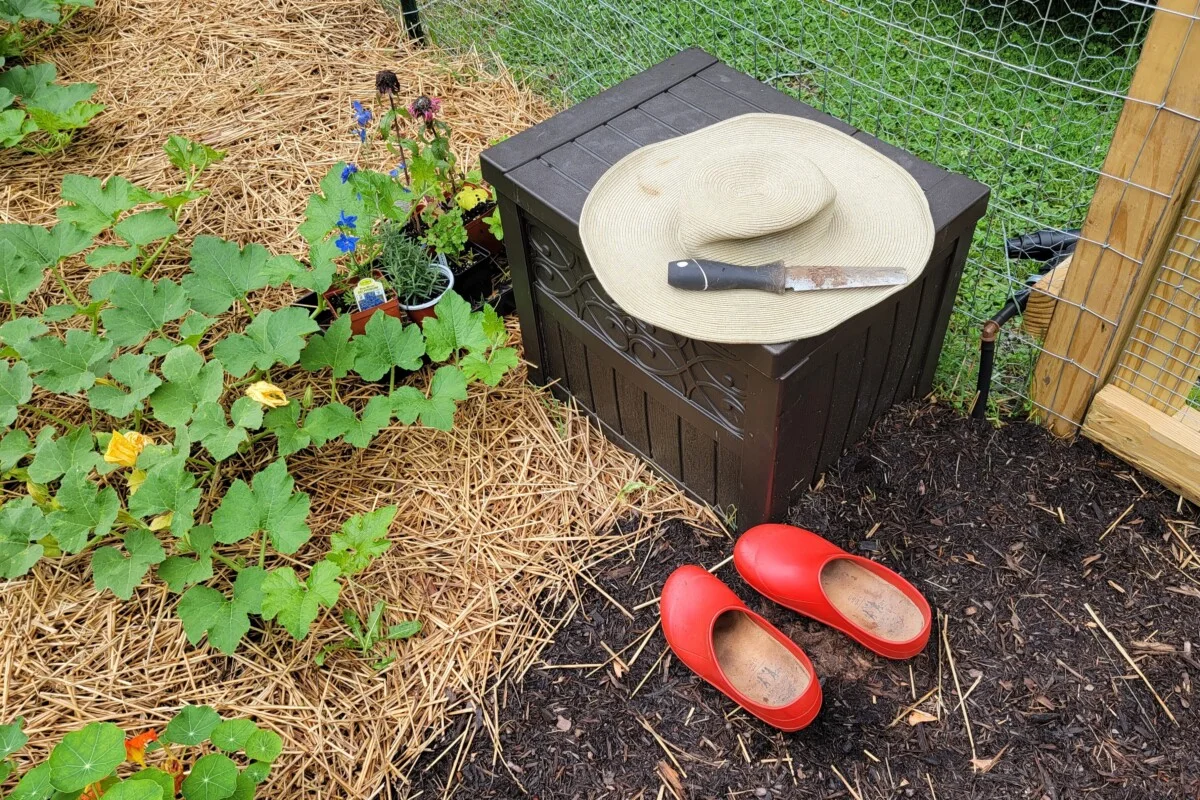
The Big “D” Word
Depression. Yup, I’m saying it because it’s important to acknowledge. If you notice your lack of motivation extends beyond gardening to other activities you normally enjoy, if you’re having trouble sleeping, concentrating or find yourself exhausted all the time, it could be depression.
As someone who has struggled with depression for most of my life, I know what it’s like to be in that place.
It’s important to talk to someone about the way you’re feeling. Our instinct is to self-isolate when we feel this way, but acknowledging something is off and talking to someone is so important and is the first step in dealing with depression.
Fixing Your Growjo
Now that we’ve looked at some common causes that can steal our gardening joy, we can figure out how to regain it.
Put Down the Spade and Pick Up Your Pen
I’m a huge fan of journaling. I can’t begin to express how helpful it is to write about things that are on my mind. I may not solve all of my problems by writing about them, but I certainly close my journal feeling a heck of a lot less stressed.
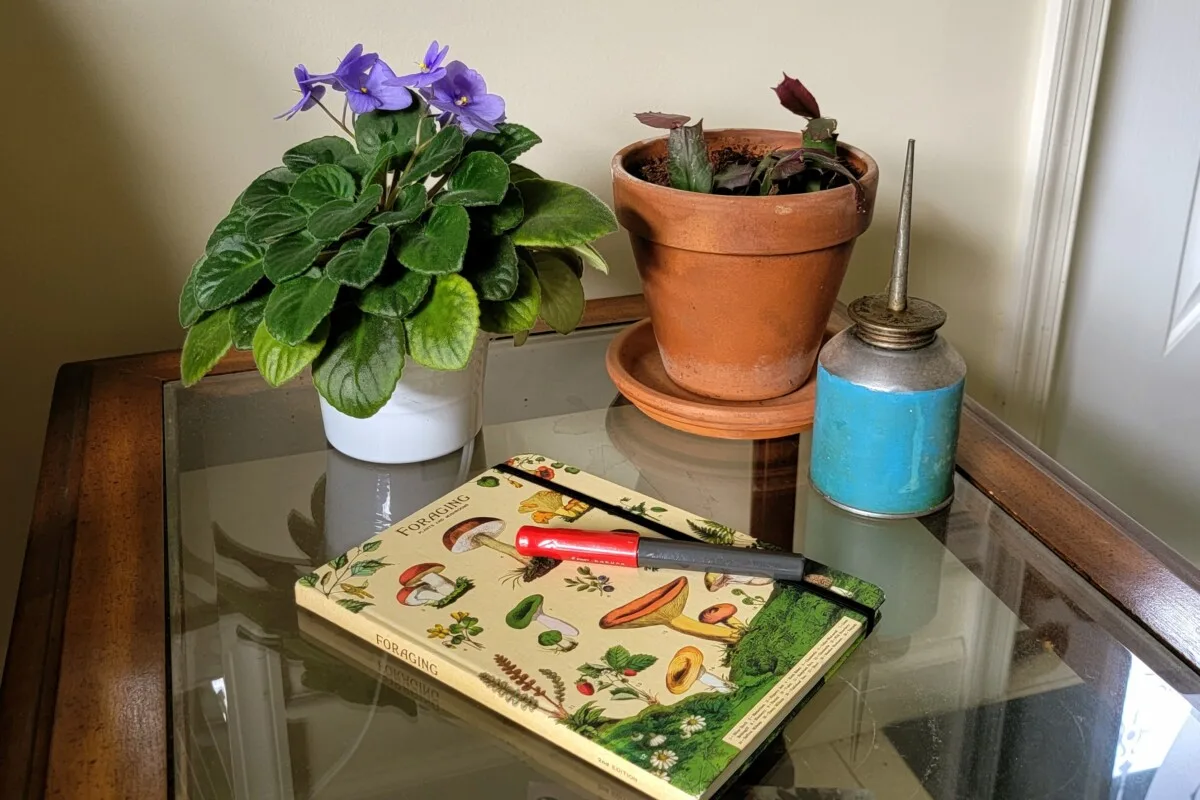
Even if journaling isn’t for you, if you’re serious about your lack of gardening enthusiasm, I would encourage you to sit down for a minimum of fifteen minutes and write about it.
Some questions you might want to mull over:
- What’s happening in your garden?
- What’s different from last year?
- What’s happening in your life?
- Are you busier this season?
Get specific about these questions, reread each of the issues listed above and write about them briefly. I would even encourage you to look at my article, 12 Things to Ask About Last Year Before You Plan Your Garden, as the answers to those questions can shed light on how you’re feeling about your garden this season.
Look for Simple Solutions
If you’re already burned out, coming up with an elaborate plan to salvage your garden and your lack of enthusiasm will only make things worse.
If you’re busy, are there things you can do to make your garden less demanding?
We’ve found that mulching the entire garden, paths and all, means we spend less time weeding and watering. Last year, we added a bhyve hose faucet timer to our soaker hose and set up a watering schedule. Now watering isn’t something we have to think about at all.
Are you overwhelmed by too much produce?
Yank up some of those plants. Seriously. If you can’t manage it and gardening isn’t fun anymore because it’s too much, pull up some plants and toss them on the compost pile. You’ll feel less guilty about the empty spaces in your garden than you will about veggies going to waste because there’s too much.
If your battle is with a pest, the four-legged or insect variety, is there a quick solution to get you back on track? For instance, installing rabbit fencing or using row covers to keep bugs out.
You get the idea. As they say, knowing is half the battle, and if you can figure out some easy things to solve your gardening issues, you’re more likely to enjoy gardening again.
Reconnect With Your Garden
One of the best ways to get your motivation back is to spend time in your garden. I know; it’s counterintuitive when you’re feeling burned out and unmotivated. But I don’t mean working in it.
Go for a walk in your garden.
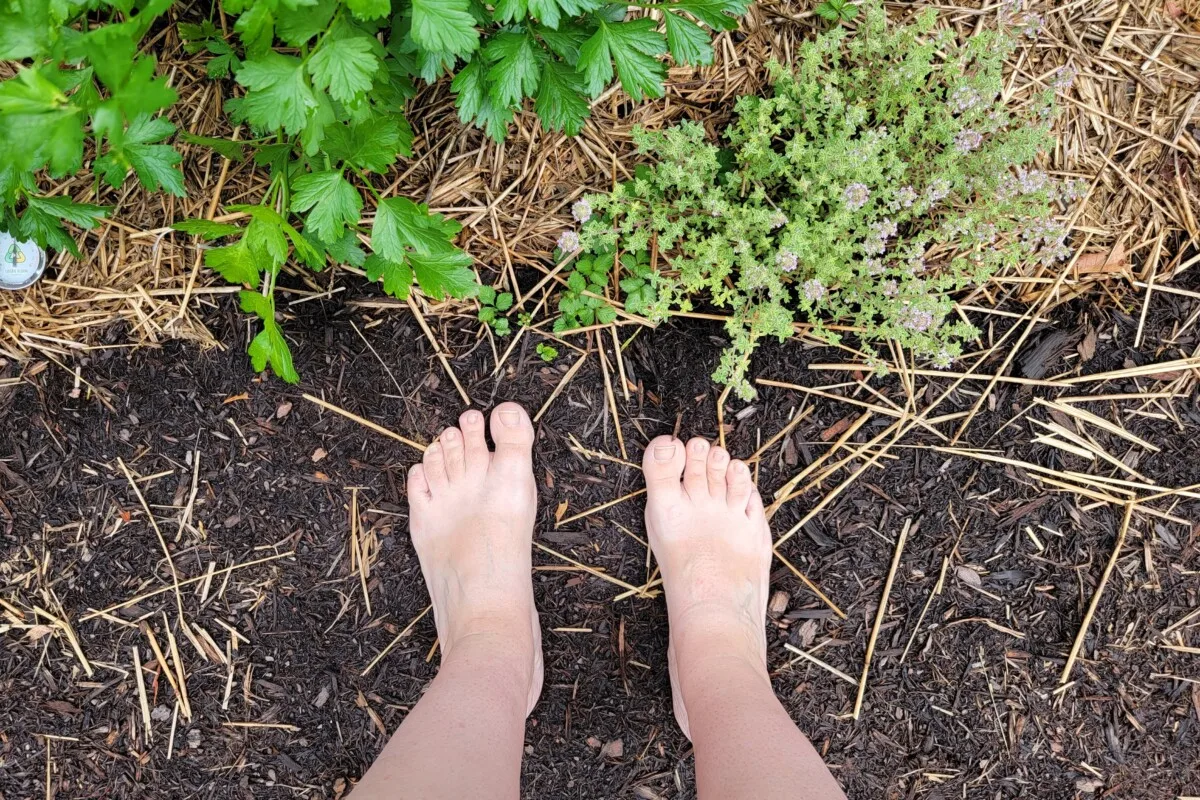
Barefoot if you can. Just spend some time hanging out in your garden. Don’t go out there with the intention of weeding or finally getting in the beans or pruning your tomatoes. Just walk around and simply enjoy it.
Go slowly and engage your senses.
Touch the plants with your hands, and feel the prickly squash leaves and the feathery fronds of carrot tops. Smell the sun-warmed soil, feel it beneath your feet, or squeeze some of it in your hand.
If you can, pick something and eat it straight from the garden.
Resist the urge to pull weeds or deadhead flowers or do anything other than admire and observe.
I encourage these garden walks at least once a week, as it helps you stay connected and grounded.
Fake It ‘Til You Make It
Another way of jumpstarting your garden mojo is through routine. Set a timer on your phone or use a kitchen timer and work in your garden for fifteen minutes.
Once the fifteen minutes is up, you may want to keep going. If that’s the case, great, keep at it.
If not, that’s okay; you got fifteen minutes of work done; now go do something else.
Make it a point to spend at least fifteen minutes a day in your garden, and before you know it, you’ll be happily gardening well past your fifteen-minute timer.
Take a Temporary Break
Believe it or not, you can walk away from your garden for a week or two. Just ignore it and take a break. You may be surprised at what you find when you jump back in. Sure, there will be weeds, but probably not as many as you would think.
And plants are remarkable at growing all on their own without us hovering and fussing over them.
Taking a small break may be just the thing you need to recharge your batteries.
Take the Season Off
Yup, just let it go.
(Stop singing right this minute!)
Believe it or not, it’s 100% okay to walk away from your garden.
Yes, even if it’s the middle of the gardening season and everything is cranking out produce faster than you can eat it.
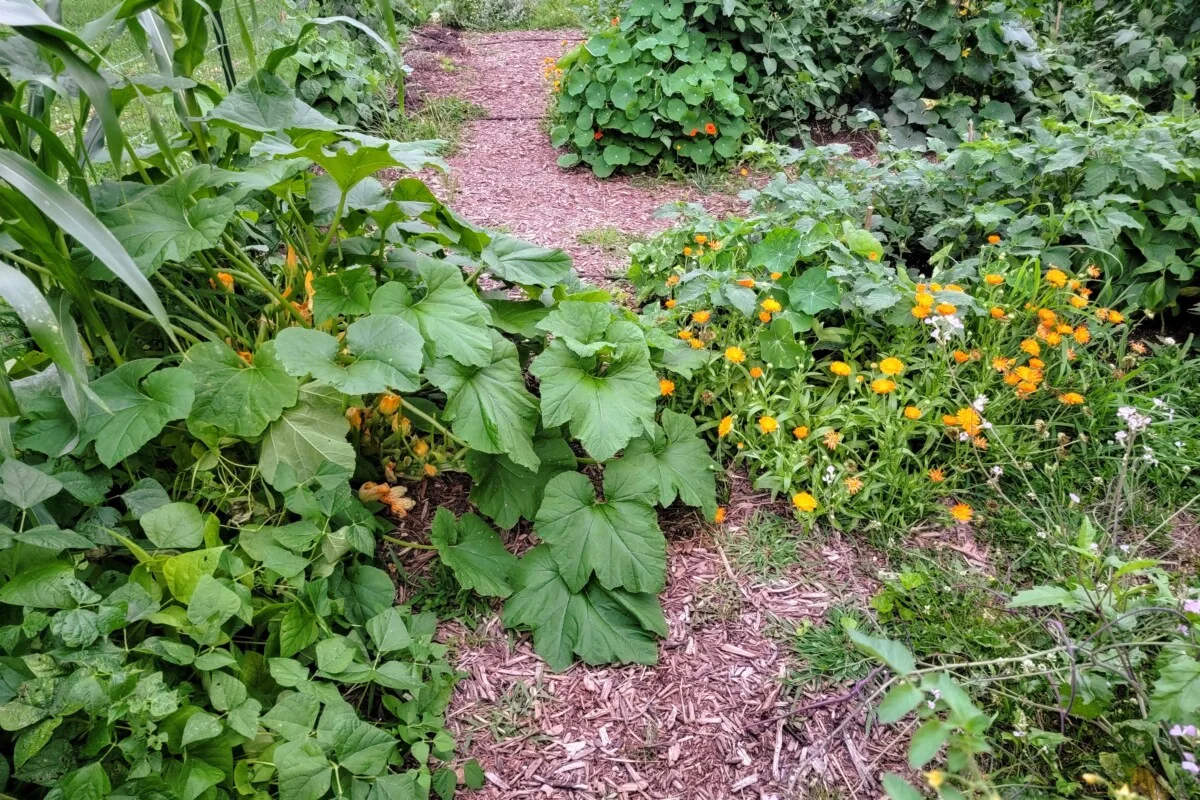
If you don’t have the physical or mental energy to deal with it this year, then don’t.
I promise the garden police won’t show up at your door and revoke your membership in the garden club. It’s okay to let your garden go wild for the rest of the season.
Our time and energy are finite; sometimes, the kindest thing you can do for yourself is acknowledge that and move forward accordingly.
If you feel terrible about letting all your hard work go to waste – don’t. There will always be next year.
You can always call around or post on social media letting friends and family know that you have free produce up for grabs for anyone who wants to take over your garden. I know plenty of folks without access to a garden who would jump at the chance. You could even reach out to your local community garden and ask if they had anyone who didn’t receive a plot that year that would like to take over your garden for the summer.
Be Kind to Yourself
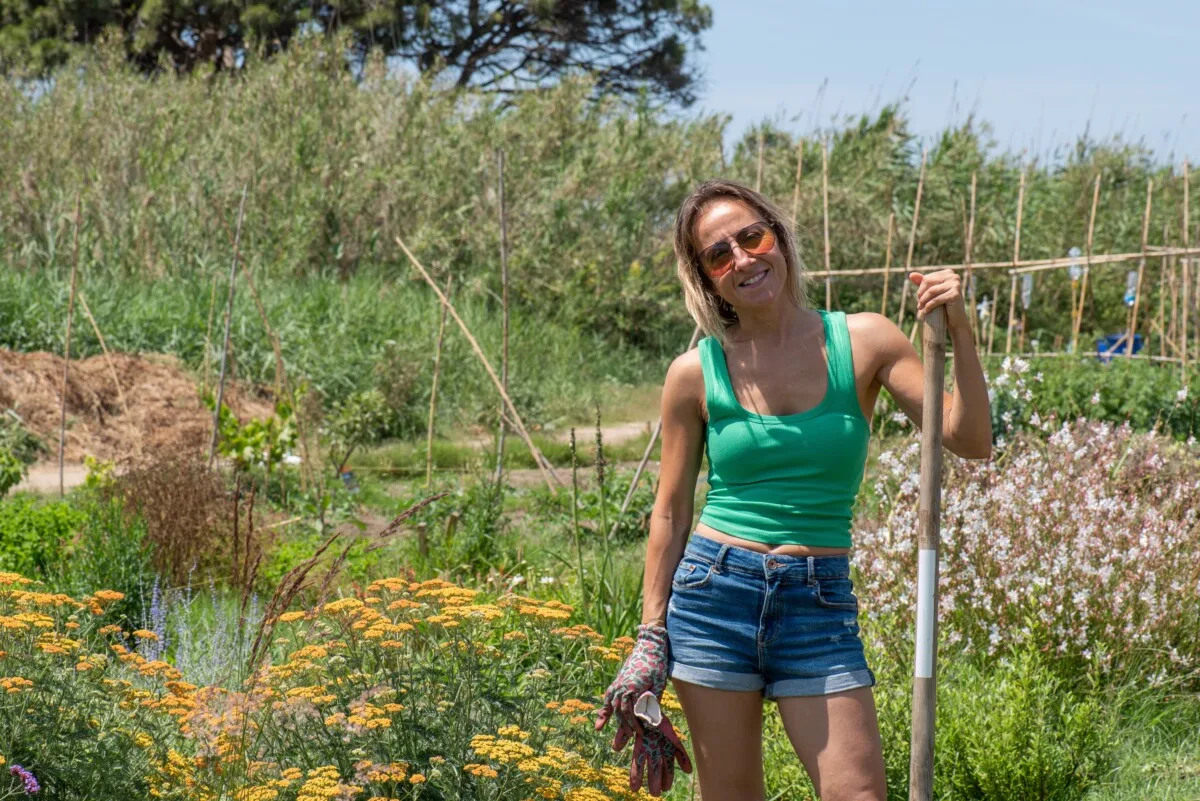
No matter what you choose to do, it’s important not to beat yourself up for feeling this way. If you garden long enough, it will happen. It’s natural and normal to go through periods where we don’t enjoy an activity we usually do. Be kind to yourself as you figure out what to do this season and possibly the next. You can always come back when you’re ready.
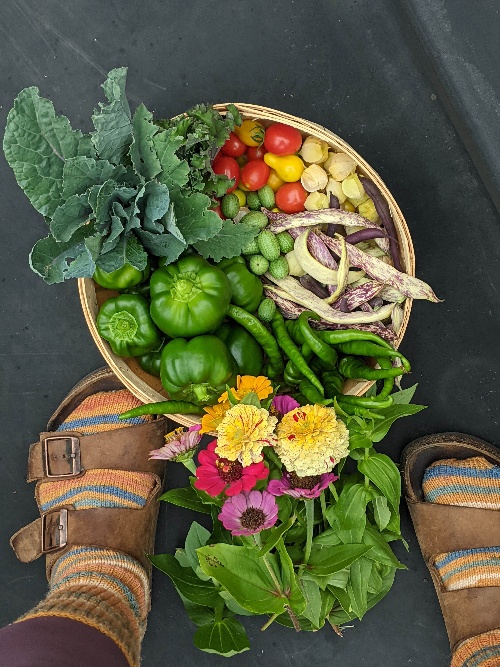
Get the famous Rural Sprout newsletter delivered to your inbox.
Including Sunday musings from our editor, Tracey, as well as “What’s Up Wednesday” our roundup of what’s in season and new article updates and alerts.

